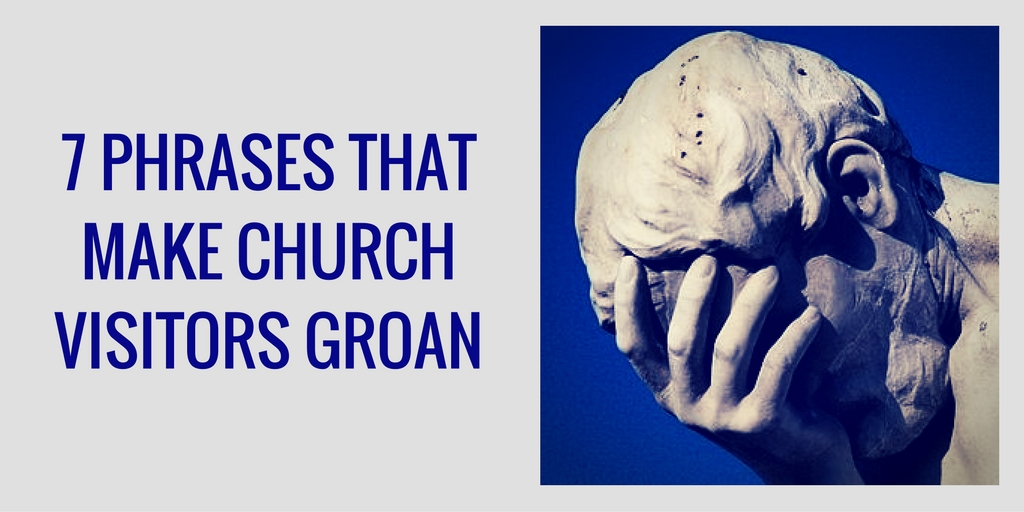7 Phrases That Make Church Visitors Groan
 Church visitors should be treated like gold. But sadly, they sometimes feel excluded by the very people who are trying to make them feel included. How does this happen?
Church visitors should be treated like gold. But sadly, they sometimes feel excluded by the very people who are trying to make them feel included. How does this happen?
I believe it’s mostly due to communication errors. Most people simply don’t realize that what they’re saying is inappropriate or even offensive. They likely have good intentions, but they fail to think about how their comments might make others feel (a friend of mine helps his church staff avoid this error by reminding them to “think like a visitor”).
Like it or not, church members will continue to unknowingly offend visitors. No leader can (or should) control what others say to a visitor, but what leaders can do is make better word choices when they get the chance to speak in front of the congregation. What is said by the person holding the microphone will not only put visitors at ease, it will also model the type of language that others in the church will hopefully adopt.
Here are seven phrases that you should think twice about before using.
1. "If you're visiting with us today, we're so glad that you're here."
A classic line that worship leaders and emcees often use as a greeting to welcome guests. On the surface, there’s nothing “wrong” with this statement. But this statement carries subtle messages that aren’t helpful.
- This identifies visitors as a separate group which might make them feel like the one person at the dinner table who isn’t a blood relative. Most visitors don’t want extra attention; they’d rather be treated like everyone else.
- Unless there's an added message or course of action, these words of “gladness” are just words. Depending on how visitors experience the rest of the worship gathering (does anyone introduce themselves to them?), this statement might later be interpreted as empty words and reinforce a presupposition that a visitor may have of the church or of the Christian faith.
I suggest that you use inclusive language when you address visitors. You can speak to them directly, but make the transition from “them” to “us.” Here’s an example: “Thanks for being here today. Whether you’re a newcomer or have been part of our church family for decades, we’re thankful that we can worship God in this place together.”
2. "Make sure to invite your non-Christian friends.”


